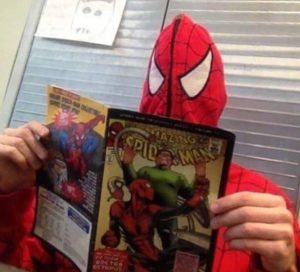I was doing okay with money…I thought. I paid for my most recent car in cash all up front to eliminate recurring car payments. I made a few smart decisions in college to minimize the amount of loans I’d need to take out. Graduating with student loan debt totaling about half the average debt for an undergraduate degree, I ended up with a very reasonable repayment plan. As such, I put a little extra toward my student loans each month but didn’t mind taking the time to make payments because I could afford it while putting money toward some other things. Mostly things I wanted. I put some money in savings, but as the numbers on the screen reached a length comfortable enough for me, I became less consistent and aggressive in savings.
Fast forward to age 31. I’m about to get married. In just two months, I take out my first mortgage, put a down payment on a house, get married, and go on a honeymoon. When we get back and take inventory of our assets and debts: mine, my wife’s, and a fresh mortgage, the numbers on the screen and the paper tell us we have significant debt. Some people might say that is just a normal part of life. That’s what a mortgage is really: it’s debt, but you get to live in something of substance to show for it. My wife and I decided to take a financial class to help us learn to discuss and manage our finances as a married couple instead of as two singles. Within two lessons, I began to doubt my comfort with the “normalcy” of debt.
First and foremost, being in debt means I have to keep working because someone has a claim on a part of my identity. If you ask my friends and family about who I am as a person, they’ll tell you about certain qualities or characteristics, but they do not have a claim on that. I am not indebted to them, in the strictest sense, for having those characteristics. However, if you ask certain financial institutions about who I am, they may tell you I’m responsible in paying back debt, but at a fundamental level they’ll tell you that I owe them money. They aren’t interested in what kind of person I am, what my dreams are, or what I value. I owe them money, and until I no longer owe them money, a part of the money I get each month for my work cannot go to my savings. It can’t go to my wife. It can’t go to charities or nonprofits I care about. My ability to save for the future and give to others at the same time is actually limited by having to pay back debt. In essence, being in debt means that a part of my energy, who I am, belongs to someone else. I don’t want that. I don’t want the bulk of my story to be about paying back debt. I want to save and give radically.
So I’m working. I work full-time teaching. In the afternoons after school, I often tutor. I look for side gigs. Resting on Sundays, I spend some time every day of the week looking for opportunities to pay off my debt to free myself from those who can make a claim on me so that I can invest more wholly to passions and projects that contribute to the stories I care about.
If you have debt, I hope that this post encourages you. My intention is not to shame others for having debt. Rather, my hope is that you are inspired to seek financial freedom. The class my wife and I are taking comprises the insights and opinions of Dave Ramsey. In one of his lessons, he references a biblical proverb, Proverbs 6 to be precise, which advises anyone who has pledged something to a stranger to “free [himself], like a gazelle from the hand of the hunter, like a bird from the snare of the fowler.” Dave Ramsey observes that gazelles do not escape the hunter by playfully meandering in the meadow. They run. They run fast. Likewise, he advises, if you’re in debt, you don’t get out of it by casually walking away. You have to run. You have to run fast. Then, when you’ve escaped, enjoy that freedom.

Nathan Fesmire lives in Virginia, where he currently works as mental health counselor for a school serving students with behavioral health issues. He also tutors part time, reads other times, thinks way too much, writes not nearly enough, climbs things, and passionately defends breakfast foods as viable choices any time of day.
